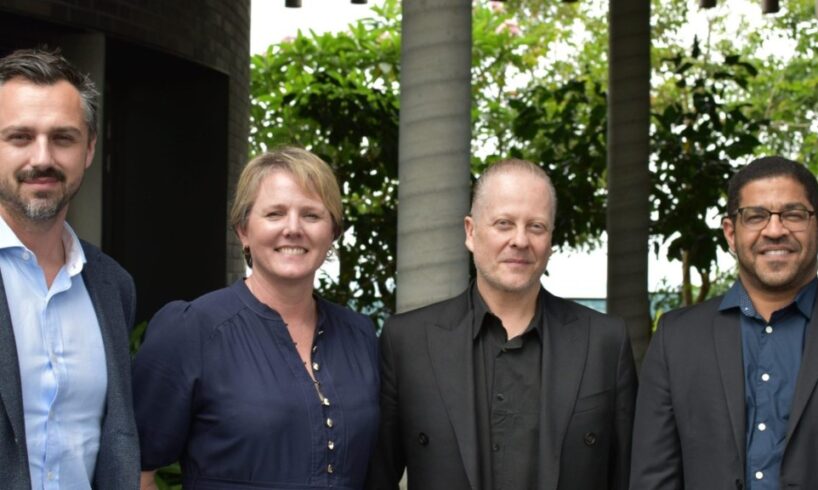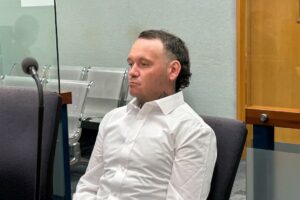
This week, local startups secured capital to solve problems big and very, very small.
First, the massive issue of waste.
Australia produces more than 75 million tonnes of waste per year, equating to nearly 2.9 tonnes per capita, according to federal government estimates.
RecycleSmart, a six-year-old startup helping homes and businesses dispose of waste not suitable for regular council collection, this week closed a successful crowdfunding round.
On the other end of the spectrum is Diraq, devoted to the research and development of impossibly small quantum computing technology.
Read on to learn about its latest funding injection.
In addition, Alumly, a new startup developed by former Salesforce executive David Yip, says it has secured at least seven figures in investment from the UK’s Mauve Group.
The startup is keeping the precise figure under wraps, for now, but it intends to use that capital to expand what it calls a digital work experience platform for students.
Diraq: $15 million
Diraq founder and CEO Andrew Dzurak. Source: Diraq
Quantum startup Diraq has quietly raised $15 million in new funding, according to a report by Capital Brief.
The Sydney-based company, founded by CEO Andrew Dzurak, is building a global reputation for quantum processors that rely on the existing chip manufacturing process.
It might seem strange to develop quantum technology reliant on semiconductor supply chains — especially when quantum computing is touted as a fundamental leap from traditional silicon chips. But Diraq says its innovations can be manufactured using existing silicon manufacturing plants, leveraging tried-and-true processes to develop quantum technology at scale.
Diraq’s ultimate goal is to design, build, and operate the world’s first “utility-scale” quantum computer.
Capital Brief reports new investors include ICM Global Funds and Morgan Creek Digital, while returning backers include Main Sequence, Uniseed, NewSouth Innovations and Quantonation.
Diraq secured an extended $23 million Series A round in 2024, which built on a prior $30 million Series A announcement in 2022.
The company was also welcomed into the Quantum Benchmarking Initiative, run by the US Defense Advanced Research Projects Agency, to tackle some of the biggest challenges in quantum computing.
Read more.
BrainFish: $9.8 million
L-R: Brainfish co-founders Ajain Vivek (CTO) and Daniel Kimber (CEO). Source: Supplied.
AI-powered customer support startup BrainFish has secured $9.8 million (US$6.4 million) in pre-Series A funding as it presses ahead with plans to expand its presence in the US.
Prosus Ventures led the funding round, with existing investors Peak XV Partners, Macdoch Ventures and Black Sheep Capital also contributing.
BrainFish, which was founded by CEO Daniel Kimber and chief technology officer Ajain Vivek in 2023, has already established its US headquarters in San Francisco. From there, it plans to grow its US presence, including by scaling its engineering team to meet growing demand.
Kimber moved to San Francisco three months ago and described the city as an “AI mecca”.
“Things move at a lightning pace here, and we need to continue to build at the forefront of technical innovation,” Kimber told SmartCompany.
BrainFish employs close to 20 employees across its global team and its platform supports more than 5 million end users, including ASX-listed companies Mad Paws and Airtasker.
“We’re building an AI system of record for software that comprises product knowledge generation and curation, knowledge distribution and insights,” said Kimber.
“This creates a flywheel effect for our customers as it ensures they can continuously deliver accurate, personalised information to every user and team member when they need it.”
Read more.
RecycleSmart: $1.5 million
Source: Supplied
Also announcing new funding this week was Sydney-based recycling startup RecycleSmart, which has raised $1.5 million mostly via an equity crowdfunding campaign.
The waste tech platform secured $1.35 million from close to 1,000 retail investors through its Birchal campaign, which closed at the end of last week, as well as an additional $200,000 from wholesale investors. It is hoping to reach a total fundraising goal of $2 million.
Prior to its latest capital raise, RecycleSmart had raised more than $4 million in funding, including $1.15 million in May 2024, also via Birchal.
Founded in 2019 by CEO Giorgio Baracchi and chief technology officer Marco Prayer, RecycleSmart helps households, businesses and councils dispose of items that can’t be recycled via kerbside bins.
This includes soft plastics, e-waste, blister packs, polystyrene, textiles, kitchen items and batteries. The items are collected by contractor drivers and delivered to one of the company’s 60 partners for either reuse or recycling.
Since launching, the company says it has diverted more than 1.5 million kilograms of waste from landfill, and generates $3 million in annual recurring revenue from pick-up users, businesses and councils.
The startup operates in every Australian state and territory, except the Northern Territory. It plans to use its new funding to scale its operations and add new features for households and businesses.
Read more.
Cohabit: $1.2 million
L-R: Cohabit CEO Thom Richards and CTO Michael Cindric. Source: supplied
Sydney-based proptech startup Cohabit has raised $1.2 million in funding from a group of prominent Australian business people, just six months after its soft launch.
The investors leading the round included Qantas chairman John Mullen and DigiDirect and Booktopia CEO Shant Kradjian. Michael Cindric, the founder of Sentia, which is the developer behind Airtasker and Shippit, also backed the startup, as did KerinBenson Lawyers principal Christopher Kerin.
Following the capital raise, Cohabit plans to focus on streamlining and accelerating the product development for its platform, which offers data and benchmarking for strata and residential buildings.
As reported by SmartCompany earlier this week, the startup was founded by CEO Thom Richards in 2023. The serial founder, who has invested $500,000 of his own funds into Cohabit, previously co-founded payment platform Managed App in 2017.
The Cohabit platform uses AI to analyse particular data points, including strata records, building information, pricing data and benchmarked industry data, to produce a digital profile and health score for buildings.
This profile can then be accessed by different stakeholders, including owners, strata managers and potential buyers.
Cohabit has around 50,000 building profiles on its platform and employs a team of 10. Around 15 leading strata inspection companies have signed on to use the platform.
Read more.
Five Faces: $1 million
L-R: Josh Ayscough, Nicole Nixon, Jason-Serda and Abdul Alabri. Source: Five Faces
Queensland health tech startup Five Faces has completed its first external capital raise, after securing $1 million in Series A funding in June.
As reported by Startup Daily, the funding round was led by Utiliti Group and includes support from the Queensland government’s Female Founders Co-Investment Fund.
Alphalitica, which trades as Five Faces, was founded in 2019 by CEO Nicole Nixon and chief technology officer Abdul Alabri.
The company originally focused on digital signage, but later evolved into a patient experience software provider. It launched its low-code, foundational technology in 2024, designed to help hospitals and health providers digitise their patients’ experience.
Nixon, who was recently named Entrepreneur of the Year at the 2025 ARN Women in ICT Awards, said in a statement that technology has a key role in both making hospital experiences more efficient and convenient for patients.
“Patients are consumers first,” she said.
“If they can use their mobile to check into a flight, they expect the same to check into a hospital appointment.
“Patients today expect a digital-first approach across all hospital touchpoints. But they are still faced with phone calls, paper forms, long queues and long waits in crowded waiting rooms. It’s not 1999, but it can still feel like it. Due to the complexity in the health system, the industry has often lagged when it comes to digitisation.”
Five Faces’ technology is being used by a number of health providers, including Sydney Local Health District, Alfred Health and New Dunedin Hospital. The company plans to use its new funding to grow this user base both in Australia and overseas.
Utiliti managing partner Jason Serda said Five Faces is growing at a time when innovation is taking place across the healthcare sector.
“Utiliti and its investors were very impressed with the technology and recent traction, as well as the team, and look forward to actively supporting Five Faces to scale globally,” he said.





